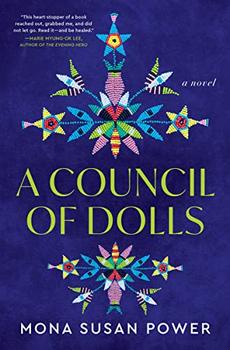Summary | Excerpt | Reading Guide | Reviews | Beyond the Book | Read-Alikes | Genres & Themes | Author Bio

Critics' Opinion:
Readers' Opinion:
First Published:
Aug 2023, 304 pages
Paperback:
Jul 9, 2024, 304 pages
 Book Reviewed by:
Book Reviewed by:
BookBrowse First Impression Reviewers
Buy This Book
Please be aware that this discussion guide will contain spoilers!
RESOURCES FOR FURTHER READING
The National Native American Boarding School Healing Coalition https://boardingschoolhealing.org/
American Indian Stories, Legends, and Other Writings by Zitkala-Ša (Penguin Classics, 2003)
Boarding School Seasons: American Indian Families, 1900-1940 by Brenda J. Child (Univ. of Nebraska
Press, 2000)
Indian School Days by Basil H. Johnston (Univ. of Oklahoma Press, 1990)
Kuper Island, podcast about the experiences of Indigenous children at a residential school in Canada
(CBC Podcasts, 2022) https://www.cbc.ca/radio/podcastnews/kuper-island-transcripts-listen-
1.6622551
Stringing Rosaries: The History, the Unforgivable, and the Healing of Northern Plains American Indian
Boarding School Survivors by Denise K. Lajimodiere (North Dakota State Univ. Press, 2019)
They Called It Prairie Light: The Story of Chilocco Indian School by K. Tsianina Lomawaima (Univ. of Nebraska Press, 1995)
They Called Me Number One: Secrets and Survival at an Indian Residential School by Bev Sellars (Talonbooks, 2012)
Download the full book club kit
Unless otherwise stated, this discussion guide is reprinted with the permission of Mariner Books. Any page references refer to a USA edition of the book, usually the trade paperback version, and may vary in other editions.





The House on Biscayne Bay
by Chanel Cleeton
As death stalks a gothic mansion in Miami, the lives of two women intertwine as the past and present collide.

The Flower Sisters
by Michelle Collins Anderson
From the new Fannie Flagg of the Ozarks, a richly-woven story of family, forgiveness, and reinvention.

The Funeral Cryer by Wenyan Lu
Debut novelist Wenyan Lu brings us this witty yet profound story about one woman's midlife reawakening in contemporary rural China.
Your guide toexceptional books
BookBrowse seeks out and recommends the best in contemporary fiction and nonfiction—books that not only engage and entertain but also deepen our understanding of ourselves and the world around us.